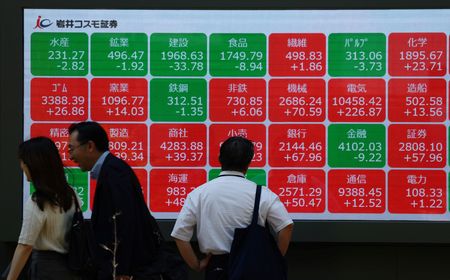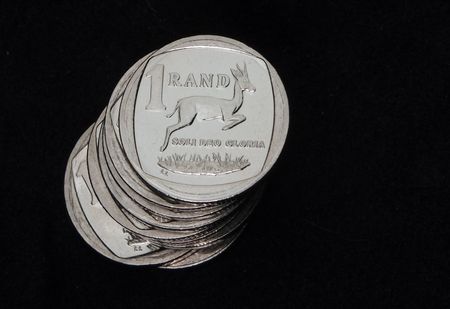By Stella Qiu and Linda Pasquini
SYDNEY/GDANSK (Reuters) – European stocks looked set to cap a strong week with gains on Friday, as upbeat earnings helped sustain the rally sparked by a U.S.-China trade truce, while oil prices remain relatively low, further supporting stocks and bonds.
It has been a positive week for global equity markets as investors cheered a tariff truce between the United States and China that greatly reduces the risk of a global recession.
“The risk-on mood is still here on markets,” said Nabil Milali, strategist Multi-Asset & Overlay at Edmond de Rothschild, also pointing to news that the European Union and the U.S. have agreed to intensify talks on a possible trade agreement, and a better-than-expected earnings season.
“The fact that we have more positive surprises is a very good thing for European stocks.”
Europe’s STOXX 600 rose 0.55% on Friday, and was set for its fifth straight week of gains, up 2.2%, helped by a 7% rise for luxury group Richemont after it reported strong quarterly sales.
However, Milali pointed to potential difficulties in negotiations between the EU and the U.S. due to the number of countries whose interests must be represented, saying unfavourable developments could be the next “negative catalyst” for European markets.
MSCI’s main gauge of Asia-Pacific stocks ex-Japan rose more than 3% this week, and the S&P 500 is up 4.5% so far, with futures pointing to further gains at Friday’s open.
The U.S. data calendar lightens, though there will be University of Michigan consumer sentiment survey data and U.S. import prices for April.
Still, investors remained cautious heading into the weekend.
Oil prices have been choppy this week, rising on the U.S.-China deal, before falling 2% on Thursday on increased supply pressure from an OPEC+ output hike and the prospect of an Iranian nuclear deal.
Brent futures recovered only slightly on Friday, and were set to end the week 1.4% higher. [O/R]
Oil prices – low by recent standards – are helping support expectations that inflation is easing, as is Thursday’s U.S. data, which did not show any dramatic impact from U.S. tariffs, helping both shares and bonds.
U.S. core retail sales were soft and producer prices fell unexpectedly in April, increasing market bets to 57 basis points of easing from the Federal Reserve this year, from 49 bps.
“The relief from softer U.S. retail sales and PPI was palpable in the bond market yesterday and overnight,” said Kenneth Broux, head of corporate research FX and rates at Societe Generale.
“This poured cold water on the (global) bond sell-off and put the brakes on the hawkish repricing of the Fed outlook.”
The benchmark 10-year Treasury yield fell 5 basis points to 4.4%, extending Thursday’s 7 bp drop. Euro zone government bond yields were also lower. GVD/EUR] [US/]
It might be just a matter of time before the tariff impact starts to show up in the hard data. Walmart, the world’s largest retailer, said it would have to start raising prices later this month due to the high cost of tariffs.
“The relief is just temporary,” Edmond de Rothschild’s Milali said, as the tariff shock is still “very significant.”
Lower U.S. yields left currency traders selling the dollar, if not too dramatically. It was last down 0.11% at 145.5 yen, while the euro was 0.13% higher at $1.1201. [FRX/]
Gold prices fell 2% to $3,172 an ounce, erasing the previous session’s gains and taking the weekly loss to 4.6%. [GOL/]
(Reporting by Stella Qiu and Linda Pasquini; Editing by Hugh Lawson, Amanda Cooper and Kirsten Donovan)








